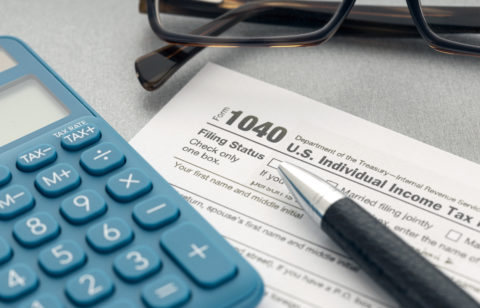Taxes can be complicated and raise more questions than answers. One debate is if you should bring home a larger paycheck or receive a bigger tax refund. Given the option, most people would want both. However, it doesn’t work that way.
If you reduce tax withholdings, you’ll pay less in taxes and bring in a larger paycheck. But in turn, your tax refund will be smaller since you didn’t contribute as much as you owe. On the other hand, you’ll be lending free money to the IRS if you increase withholdings and bring home less money. Let’s explore both options to see which one works best for you.
Making the case for a larger paycheck
Many financial gurus, including the author of the number one best-seller “Rich Dad, Poor Dad,” have strong feelings about taxes and paychecks. Author Robert Kiyosaki explains that for every dollar we receive we can either spend it or invest it.
“I’m not one to advocate living below your means, but suggest, instead, that we ask ourselves ‘how can I expect to expand my means,” says Kiyosaki. “One way to do this is to focus on investing. And even small amounts on a regular basis will put you on the road to having your money work for you.”
In addition, if you receive more money in your paycheck throughout the year, you’ll have the opportunity to create an emergency fund if you don’t already have one. That way you’ll have cash on hand to cover unanticipated expenses instead of putting it on a credit card, which typically means adding to your debt.
People Also Read
The case for receiving a big refund
Other financial experts believe that receiving more money in the form of a tax refund is better. Sixty-three percent of Americans live paycheck to paycheck, so socking away money can be challenging. Ideally, some money would be set aside to save or invest. But the more likely scenario for most people is spending it on non-essentials like going out to eat or taking an expensive vacation.
A big tax refund could act as forced savings. With a larger amount of money coming in all at once, it could be easier to set some aside for saving or paying off debt. However, it might be tempting to spend a large tax refund on something unnecessary. Discipline is required if you’re going to tackle the essentials first. Try to pay off debt or put money into savings before you ever splurge on anything.
The case for using your refund to pay off credit card debt
One of the best ways to use that big refund check is to pay down or pay off your credit card debts, especially if you’re carrying a large balance. Most credit card interest rates these days are around 24% and they’re only going higher.
Let’s suppose you owed $5,000 at 15% and your minimum monthly payment was $112.50. In this scenario, it would take you 266 months to pay off the debt. But when you add the $5,729 you would owe in interest – you would pay more than the initial balance when all is said and done.
If you used your tax refund to pay off this debt, you would not only save $112.50 a month, but you would also save $5729 in interest – which is likely more than you could earn by saving or investing the money.
Do what works for your financial situation
If you have the discipline to set aside money, it makes sense to choose to receive a bigger paycheck. By saving or investing those funds, it can grow with interest—especially with today’s inflationary rates.
But if you need the money to pay for essentials like transportation or a mortgage, reducing withholdings will help you pay your bills on time and avoid additional debt. Of course, you will have to be sure you have monies to pay your taxes.
Many experts suggest that your tax refund comes as close as possible to zero. Check out this IRS tax withholding estimator so you don’t end up owing money come tax season.









